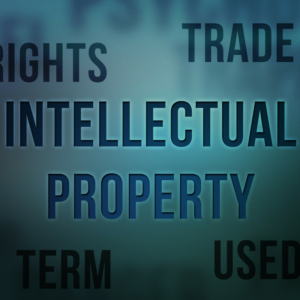Sheryl Sandberg Testimony on Drug Importation and Online Pharmacy
 The future of your ability to buy lower-cost medicine online from another country was indirectly discussed recently during congressional hearings with Facebook Chief Operating Officer, Sheryl Sandberg, and CEO and founder of Twitter, Jack Dorsey.
The future of your ability to buy lower-cost medicine online from another country was indirectly discussed recently during congressional hearings with Facebook Chief Operating Officer, Sheryl Sandberg, and CEO and founder of Twitter, Jack Dorsey.
The issues on the table were much more grandiose-sounding than importation from Canada or buying medication internationally using the Internet. Russian meddling in our elections; political bias on Twitter against conservative and Republican ideas; personal privacy protection; and lots of discussions that affect 1st Amendment protections.
The takeaway by some experts is that Congress is getting ready to regulate the Internet.
As it applies to online access to safe and affordable medicine, Internet regulation could lead to access protections or access denied. In short, the pharmaceutical industry is actively engaged in driving safe international online pharmacies offline. The industry can often get what it wants from Congress and so the dangers of Internet censorship to block access to or shutdown international online pharmacies are real.
For a variety of posts on this, see our section on Internet Censorship.
Google’s top executives were invited to the hearings yesterday, but they declined to attend. Some accused them of being arrogant. But the company itself noted that search engines, like Google and Bing, are not the same as social media networks, like Facebook, Twitter, and Instagram. Google’s search engine was not used by bad actors in the way that occurred on Facebook, for example.
Google’s absence reminded me of Ms. Sandberg’s appearance at another Congressional hearing when she was vice president of global sales for Google in 2004. That hearing of the Committee on Governmental Affairs; Permanent Subcommittee on Investigations focused on Internet access to medication and importation. In prepared remarks, Ms. Sandberg stated Google’s position on importation and online pharmacies:
“As a provider of Internet-based information tools, Google has no position on the broader merits of the drug importation debate, or on the optimal mechanisms for regulation of online pharmacies; rather, our interest is to preserve the ability of Internet users to find useful and relevant information, including information about licensed pharmacies.”
That was then; this is now. Fast forward to last spring: Google has made a deal with the FDA that undermines its earliest and best principles as articulated by Ms. Sandberg. That deal is not about blocking Canadian pharmacy ads on Google. That’s old news in bad policy-making. The new deal is that Google will remove search results if asked by the FDA, based on its administrative decisions, without a court order. These are so called “organic” searches, not paid results.
To date, the FDA has yet to use this new permission from Google to censor safe international online pharmacies. And it continues to use due process through warning letters to rogue online pharmacies, as it did to combat sites selling tramadol without a prescription. I agreed with the FDA on that action because those sites have proven to harm people who are addicted to opioids.
But, you know, pharmaceutical companies have spent four billion dollars lobbying Congress over the last 20 years or so. And if Congress is legislating new regulations to control behavior on the Internet, Pharma won’t be far behind with its goal to stop Americans from buying more affordable meds online.
Tagged with: facebook, Google, politics, Sheryl Sandberg, twitter

 The
The  Generic drugs often become available earlier in other countries and that means greater affordability. Generally, it’s a violation of a drug companies’ intellectual property rights when a company sells a generic in a country before the patent has expired. But what happens if you import a generic version of a drug, one that is lawfully-made and sold in a country where it is available but still on patent here, to fill a prescription? Are you committing an intellectual property violation?
Generic drugs often become available earlier in other countries and that means greater affordability. Generally, it’s a violation of a drug companies’ intellectual property rights when a company sells a generic in a country before the patent has expired. But what happens if you import a generic version of a drug, one that is lawfully-made and sold in a country where it is available but still on patent here, to fill a prescription? Are you committing an intellectual property violation?